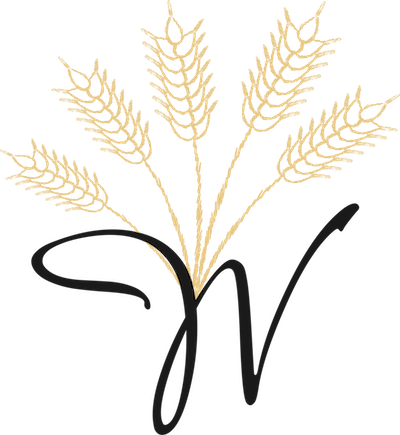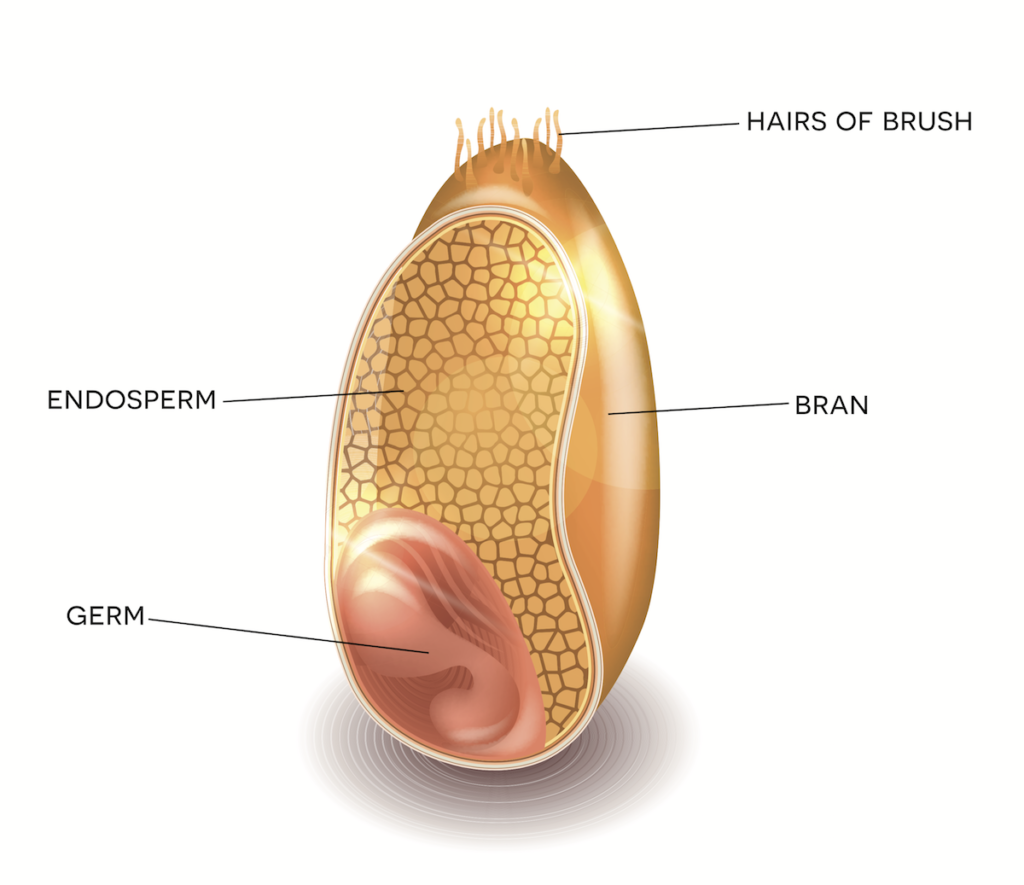Wheat Dictionary
White Wheat Flour
White Wheat Flour is made from wheat kernels that have been processed to remove the bran and the germ, leaving only the endosperm. This results in a lighter texture and flavor—as well as fewer nutrients.
Whole Wheat Flour
The word “whole” is crucial here: it means that the bran, the germ, and the endosperm of the wheat kernel have all been left intact. It is a healthier choice than White Wheat Flour.
Whole Grain Flour
Whole grain flour also contains the entire kernel of wheat. It is the healthiest choice.
What’s the healthiest choice?
Any food made with 100 percent whole grain is the most nutritious option. But be careful: just because a label says “whole grain” doesn’t guarantee that the product contains exclusively whole grains, The best way to learn about your loaf is to look at the stamps on the front of the packaging. If it bears the 100% Stamp, all of its grain ingredients are whole. These loaves also contain at least 16 grams (one full serving) of whole grain per serving, according to the Whole Grain Council. If it bears the Basic Stamp, it contains at least 8 grams (a half serving) of whole grains per serving, but may also contain some refined grain.
How About Virgin Wheat Products
All Virgin Wheat products are produced from 100% Whole Grain Einkorn and %100 Whole Grain Einkorn Flour
What is the difference between “100% organic” and “organic”?
Organic has a precise meaning under the USDA’s organic program. Certified 100% Organic means that all the ingredients in a product have been grown or raised according to the USDA’s organic standards, which are the rules for producing foods labeled organic. Certified Organic requires that 95 to 99 percent of the ingredients follow the rules.
How About Virgin Wheat Products
All Virgin Wheat products are produced from 100% Organic Einkorn and %100 Organic Einkorn Flour certified by the Idaho State Department of Agriculture.

